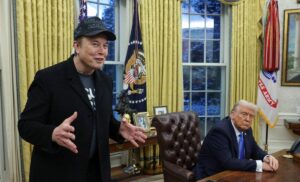Menu
- Daily
Philippines Again Named Among 10 Worst Countries for Workers in Global Rights Index
Bienvenido Laguesma labor response, EO 23 workers rights, Featured, freedom of association PH, ITUC 2025 report Southeast Asia.3, ITUC Global Rights Index Philippines, labor law enforcement Philippines, labor rights violations Philippines, Philippine union suppression, Philippines worst country for workers 2025, Workers Rights Watch reportCanada’s Unemployment Rate Hits 7% in May—Highest Level in Nearly Nine Years Outside Pandemic
Bank of Canada labor concerns, Canada labor market statistics, Canada U.S. tariffs job impact, Canada unemployment rate May 2025, Canadian employment data 2025, Canadian job market update, manufacturing job loss Canada, Statistics Canada unemployment report, Trump tariffs on Canada, wage growth Canada 2025 - National
Philippines Again Named Among 10 Worst Countries for Workers in Global Rights Index
Bienvenido Laguesma labor response, EO 23 workers rights, Featured, freedom of association PH, ITUC 2025 report Southeast Asia.3, ITUC Global Rights Index Philippines, labor law enforcement Philippines, labor rights violations Philippines, Philippine union suppression, Philippines worst country for workers 2025, Workers Rights Watch reportCanada’s Unemployment Rate Hits 7% in May—Highest Level in Nearly Nine Years Outside Pandemic
Bank of Canada labor concerns, Canada labor market statistics, Canada U.S. tariffs job impact, Canada unemployment rate May 2025, Canadian employment data 2025, Canadian job market update, manufacturing job loss Canada, Statistics Canada unemployment report, Trump tariffs on Canada, wage growth Canada 2025 - International
Trump Slams Musk Over Tax-Cut Bill Opposition, Says “Very Disappointed”
Donald Trump Big Beautiful Bill, Elon Musk leaves Trump admin, Elon Musk tax-cut bill criticism, Featured, Government Efficiency Department Musk, Musk federal deficit concerns, Tesla stock drop Trump, Trump disappointed in Elon Musk, Trump EV credit removal, Trump Musk feud 2025, Trump vs Musk latest newsHotel101 to Develop 10,000 Affordable Rooms in Saudi Arabia Under $2.5B Expansion Deal
affordable hotel chain Saudi Arabia, DoubleDragon hotel project, DoubleDragon Nasdaq listing, Edgar Injap Sia II Hotel101, Featured, global condotel model, Hannah Yulo-Luccini, Hotel101 Horizon Group partnership, Hotel101 Medina Riyadh Jeddah, Hotel101 Saudi Arabia expansion, Vision 2030 tourism Saudi - Editorial
- Next Negosyante
- Crypto News





















Comments are closed for this article!